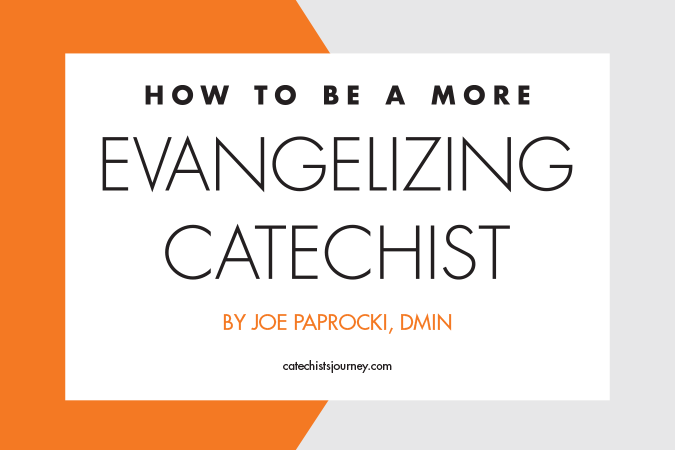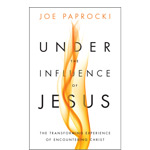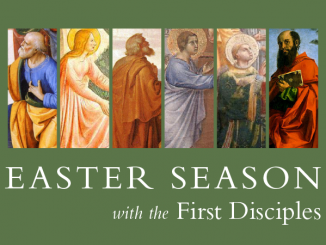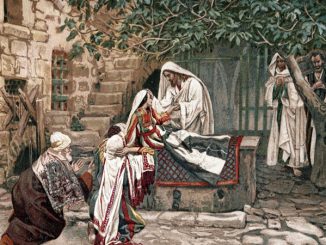
Many advertisements not only entice you to purchase a product, but they invite you to re-prioritize your life around an idea. Some of the best examples of this are diet plans, which are no longer just about losing a few pounds but are about adopting a new lifestyle. When I stroll into the kitchen at Loyola Press during lunch time, I see numerous people meticulously preparing their dishes according to the philosophy and strategy of whatever plan they have committed to. And, to their credit, the results are often quite obvious as they appear slimmer and healthier-looking over time.
The invitation that we catechists offer to those we teach should follow the same approach. We are not just inviting people to “sprinkle a little Jesus” on top of their existing lives to add flavor. We are inviting them to re-prioritize their lives, to adopt a new philosophy and strategy for living in order to create a new lifestyle—to become a new creation.
That takes commitment! And that is precisely why we need to be upfront with people about how challenging a life of discipleship will be. It will take discipline, which is why, during Lent, we practice the Lenten disciplines of fasting, prayer, and almsgiving—the three main “ingredients” in the “discipleship diet.” Not everyone is up to making this commitment at the moment we propose it; just think of the rich young man who went away sad after Jesus invited him to change his lifestyle. (Mark 10: 17–31)
Discipleship is a lifestyle change that holds the promise of Salvation—something that author Barbara Brown Taylor defines as “a transformed way of life in the world that is characterized by peace, meaning, and freedom.” (Speaking of Sin)
- Diet plans typically eschew certain types of food that are deemed unhealthy. In the “discipleship diet,” we commit to avoiding thoughts and actions that are unhealthy for us spiritually, and we use the word sin to describe those realities.
- Diet plans often involve a cleanse, which is a commitment to rid the body of toxins so that the various systems in our bodies can work more efficiently. In the “discipleship diet,” we commit to ridding ourselves of spiritual toxins so that our souls and spirits can thrive instead of being weighed-down—and we use the words fasting to refer to our participation in a spiritual cleanse and confession and absolution to describe the spiritual cleanse that occurs sacramentally.
- Diet plans identify foods and healthy eating habits that should replace the unhealthy foods and eating habits. In the “discipleship diet,” we commit to learning the healthy ways of thinking and acting that Jesus proposes and we commit to putting them into practice—and we use the word penance to describe some of these new practices, which are not punishment of ourselves but rather actions that repair us spiritually.
- Dieticians usually recommend that a person follows a plan and not go-it-alone. Most of the people I bump into in the lunch room who are following specific diet plans are doing so with a spouse or a friend. The logic is that remaining faithful to a commitment stands a better chance of success when there is structure and support. In the “discipleship diet,” we commit to a plan and to a community that offers support—and we use the word Gospel to refer to that plan and Church to refer to our support system.
As evangelizing catechists, may we continue to invite emerging disciples to do more than spread a little “Jesus frosting” on the cake of their lives but rather to commit to a lifestyle change—”a transformed way of life in the world that is characterized by peace, meaning, and freedom.” And may the effects of this lifestyle change be evident to all!
Read the other articles in the How to Be a More Evangelizing Catechist series.
 Download a flyer of the nine strategies. Go deeper with these ideas by reading my book, Under the Influence of Jesus: The Transforming Experience of Encountering Christ.
Download a flyer of the nine strategies. Go deeper with these ideas by reading my book, Under the Influence of Jesus: The Transforming Experience of Encountering Christ.





Be the first to comment